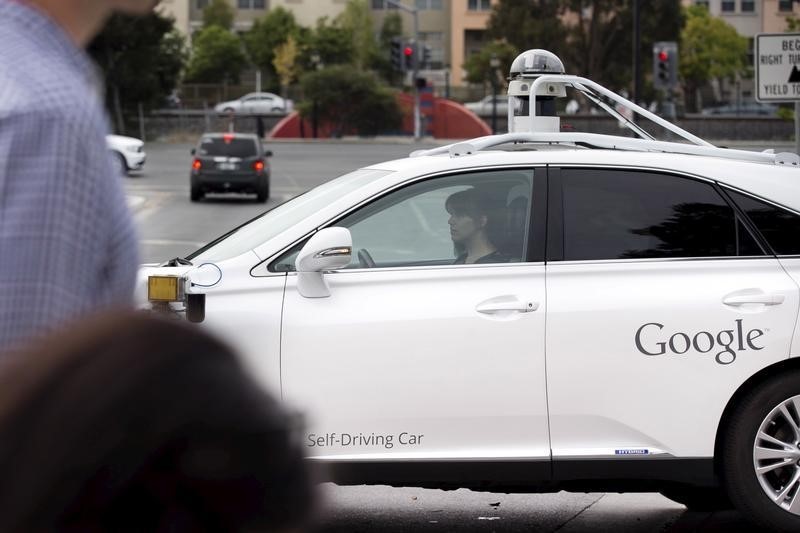By David Shepardson and Paul Lienert
WASHINGTON/DETROIT (Reuters) - Alphabet Inc's Google (O:GOOGL) unit told U.S. auto safety regulators that the government's interpretation of motor vehicle safety rules is "extremely important" to its further development of fully self-driving cars.
In a Nov. 12 letter to the U.S. National Highway Traffic Safety Administration (NHTSA) reviewed by Reuters on Wednesday, the director of Google's self-driving car project said the agency's decision on how to construe safety regulations "will have major impact" on its development.
NHTSA told Google in a Feb. 4 letter that it agreed it could consider a Google self-driving computer system as the "driver" of the vehicle - a major boost to getting self-driving cars on the road. But the agency but stopped short of agreeing to immediately waive all safety rules needed to allow fully self-driving cars on the roads as sought in Google's letter.
In a statement on Wednesday, Transportation Secretary Anthony Foxx said: "We are taking great care to embrace innovations that can boost safety and improve efficiency on our roadways. Our interpretation that the self-driving computer system of a car could, in fact, be a driver is significant. But the burden remains on self-driving car manufacturers to prove that their vehicles meet rigorous federal safety standards."
In the Nov. 12 letter, Chris Urmson, head of Google's self-driving car project, said the company's driverless vehicle was designed to "meet or exceed" U.S. safety standards. Urmson also noted that automated systems, such as Google's, "react faster than human-driven cars" and "will not be subject to driver distraction or impairment."
In its Feb. 4 response, NHTSA offered its most comprehensive map yet of the legal obstacles to putting fully autonomous vehicles on the road. It noted existing regulations requiring some auto safety equipment, requirements for braking systems activated by foot control, cannot be waived immediately. Federal regulations requiring equipment like steering wheels and brake pedals would have to be formally rewritten before Google could offer cars without those features.
On Wednesday, longtime advocate Clarence Ditlow who is head of the Center for Auto Safety, told Reuters: "It's better to write a stand-alone rule for driverless vehicles. It may take more work, but the end result is better for the consumer and the driverless vehicle maker. And it may take less time than rewriting all the standards."
